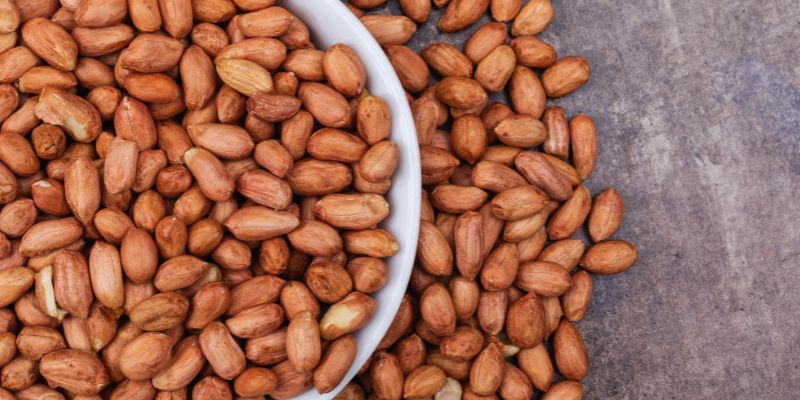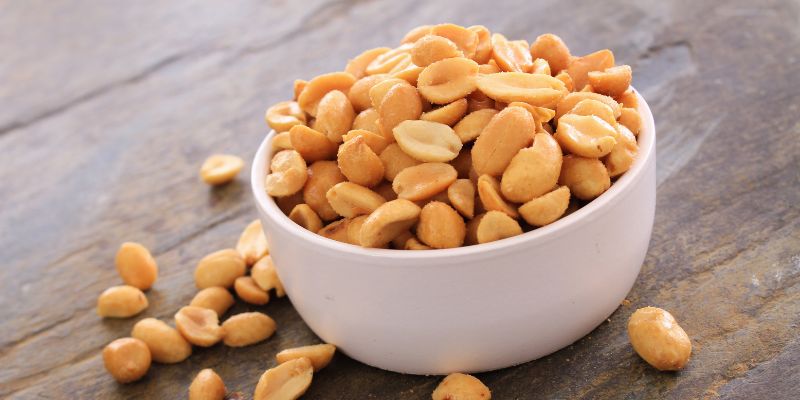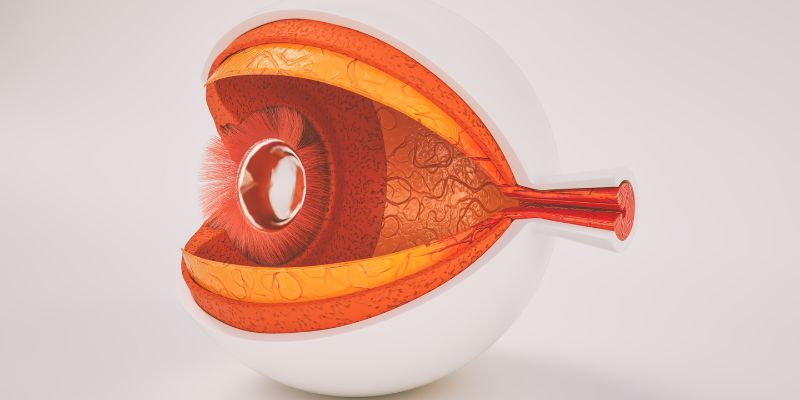What Are The Benefits And Risks Of Peanuts For People With Diabetes
The diet of people with diabetes is different from that of the general population. So, there are many foods diabetics should avoid or restrict their intake. Peanuts, for example, have been found to be a good choice for managing diabetes, controlling blood sugar levels, and preventing the development of diabetes symptoms. Also, peanut-containing products can help in weight loss and reduce the risk of cardiovascular diseases.
But if taken in large or uneven proportions, peanuts, and related products pose a risk of allergies and weight gain and trigger inflammation. If you have diabetes, the first thing you need to do is to monitor and manage your blood sugar levels. They may not rise too quickly or too far. Peanuts show a low glycemic index score and load and good nutrients, so you can reap benefits by carefully including them in your diet plan. Let's learn more about their benefits and risks in detail here!

Understanding the Risks and Benefits of Peanuts for Diabetics
Prevention is better than cure. The basic guideline for managing and preventing diabetes is to make healthy food choices, control your weight, and remain physically active. For that, adding peanuts to your diet can be a great idea. They have high protein levels, polyunsaturated fatty acids, and fiber. All these and other essential nutrients help you maintain weight and manage diabetes or normal sugar levels. Also, peanuts help you lose weight by maintaining the feeling of a full stomach. But, on the other hand, eating a lot of peanuts can be a cause of allergies and weight gain. So, before deciding whether you should add them to your daily diet or not, let's first know about their benefits and related risks here:
Benefits of Peanuts for Diabetes
Peanuts and peanut butter are beneficial for fighting and managing type 2 diabetes. Compared to other nuts, such as pecans, walnuts, and almonds, peanuts have good nutritional values and are also cheaper. Here is how peanuts can be beneficial for diabetics:
Helps in Controlling Blood Sugar and Lowering the Risk of Diabetes
The basic principle or rule of thumb to follow if you have diabetes is to consider the glycemic content of your food. The glycemic index or content is your body's response to how quickly it can convert carbohydrates into glucose or blood sugar. The GI index, or Glycemic index, rates food on a scale of 100 points, which determines how quickly a particular food can spike or raise blood sugar. Foods with higher GI values cause a spike or rapid increase in blood sugar. For example, water has a 0 GI value, so it doesn't affect your blood sugar. Similarly, peanuts have a GI value of 13, which places them in the low GI food category.
It has been proved that consuming peanuts or peanut butter in your breakfast helps control your sugar levels throughout the day. Similarly, when peanuts are paired with foods with high GI levels, they help lessen the insulin spike. Plus, magnesium is crucial in maintaining blood sugar levels. Peanuts are packed with a high magnesium content, and a single serving of almost 28 peanuts contains 12 percent of your total magnesium requirement in a day. Also, peanuts can potentially lower your risk of developing type-2 diabetes or prevent it from happening. Unsaturated fats and other important nutrients in peanuts are great sources for your body to regulate insulin levels.
Other Benefits:
Besides that, peanuts also offer other health benefits as:
- Lowering the Risk of Cardiovascular Diseases: Diabetes poses a threat or can be a reason to trigger cardiovascular diseases, as diabetes and high blood pressure go hand in hand, and both these conditions can adversely affect your heart's health. Peanuts lower blood pressure, and complications like hypertension are less likely to occur. All these conditions, if controlled or managed, can lower the risk of cardiovascular diseases.
- Weight Control: Peanuts contain proteins, fiber, and fatty acids, which can maintain satiety and a feeling of fullness in the stomach. They also lower cravings or hunger for food, ultimately helping you manage and control your weight and blood sugar levels.
Risks of Peanuts for People with Diabetes
Peanuts contain essential nutrients that help control diabetes, but they can also be a cause of concern if not taken in an appropriate manner. Here are some concerns associated with peanuts that need to be addressed.
- Omega 6 Fatty Acids: The nutrient content of omega-6 fatty acids in peanuts is much higher than in other nuts. Omega-6 can potentially increase inflammation, which may increase diabetes symptoms and also increase the risk of obesity. You should include balanced omega-3 and omega-6 fatty acids to control and prevent these conditions.
- Salt and Sugar: Peanuts and peanut-related products are offered, packed, and consumed with a high sugar and salt content. Peanuts are mostly packaged with a high salt content, which can be harmful. Similarly, peanut butter has a high content of added oils, fats, and sugar, so choosing a peanut butter packed with fewer or no added ingredients for your daily consumption is best.
- Risk of Allergies: Many people experience serious allergic reactions to peanuts, so it's better to be aware of them and consult a health professional immediately.
- High in Calories: Peanuts are among the few nuts with high calories; a half cup of peanuts contains almost 400 calories, so it's best to eat them as a complete meal rather than add them to other meals like red or processed meat.
- Other Risks: Some highly processed peanut products, such as peanut powder, have low nutritional values and don't provide the same health benefits as natural ones, so the takeaway is to consume peanuts in their raw, organic form. Typically, packaged peanuts have a high sodium content. It's better to buy them raw and add seasoning at home. You can roast them and add whatever you like, but be careful.
Conclusion:
Diabetes is a widespread disease that causes complications to your overall body health, especially if it can affect your heart's health and cause blindness and renal failure. It is in your best interest to manage and control diabetes. The best way to manage and control your diabetes is by changing your diet, including healthy food and physical activity in your daily routine. Peanuts are proving to be super effective in managing and controlling your diabetes if balanced. Eating them in pure form without any added salt or sugar is advisable.













